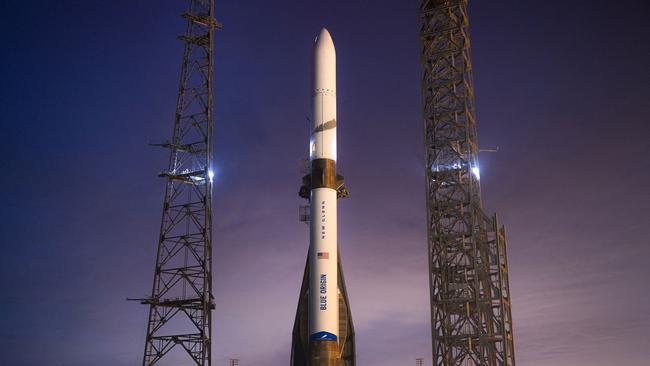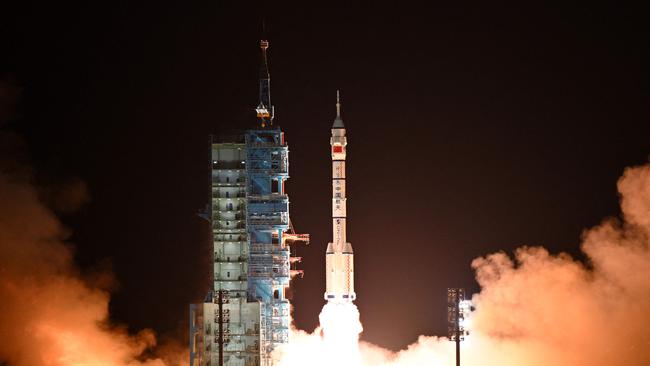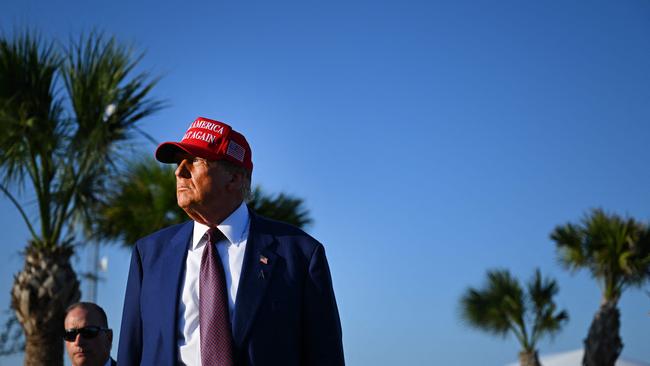Tussle for dominance of low Earth orbit, moon will decide if US can stay ahead of China
There was, however, a more grounded explanation. Although China was given only a glancing mention in Trump’s speech, there is no disguising the fact that the cold war between the United States and China is heating up and is likely to define the politics of the next decade. The final frontier of this arch-rivalry will be marked by the new space race between them.
To no one’s surprise, Elon Musk – in the Capitol rotunda alongside his fellow big-spending space investor Jeff Bezos – let out a whoop of approval at the mention of Mars. Colonising the red planet isn’t the only target for space innovation but, with Trump’s blessing, it could be the one that demonstrates the baked-in entrepreneurial superiority of the US over China.
The space race, including the one in both the early and later stages of the first Cold War, with the Soviet Union, was about making the link between economic dominance and military war-winning edge. Soviet success in launching satellites spurred the Kennedy administration into adopting a manned moonshot strategy. Winning that contest, putting Americans on the lunar surface and bringing them back safely, exposed Soviet technological weaknesses and helped brand the US as a supermodern state capable of designing and launching intercontinental weapons.

Now, China’s readiness to plough huge amounts of government funding into lunar exploration is regarded as a serious challenge by the Trumponauts. Beijing seems to be gunning towards building a base on the icy, far side of the moon (target 2030) with a view to scooping up rare minerals. But also for the propaganda value.
“Whoever establishes the first human base on the moon will be seen by billions as the leader of the world,” says the experienced space engineer Steve Kwast. It might not bring any military advantage but it would be like a giant advertising billboard proclaiming the might of the People’s Republic of China.
There is a militaristic backdrop to China’s efforts. Seven years ago, Ye Peijian, head of the country’s lunar program, made it clear that the space race was about the denial of celestial territory to the Americans. “If we don’t go now, even though we are capable of doing so, then we will be blamed by our descendants. If others go there, then they will take over and you won’t be able to go even if you want to.”

This is reminiscent of an old-fashioned colonial mentality and it derives from a still-valid 19th-century view of naval strategy. Just as the oceans of the Earth are linked by choke points such as the Malacca straits and the Panama Canal, so space has its strategic layers. Control the moon and you not only get to mine it but also to dominate low Earth orbit, its belt of satellites. Tomorrow’s battles will be won or lost according to who controls and dominates the space frontier.
If that sounds a bit too science-fictional, consider the US intelligence sightings of Russian and Chinese test-flights of satellites that use the equivalent of grappling hooks to tug enemy satellites out of orbit. Beijing’s “kinetic kill vehicles” – basically, suicide satellites – are built to knock out long-range ballistic missiles. Target practice has been spotted.
Chinese Academy of Sciences researchers have, more fancifully, mooted a huge solar power station that can gobble up and store the sun’s rays. Unaffected by seasons or the day and night problems that slow down Earth-bound solar collection, it could, if realised, collect energy in a year equivalent to annual terrestrial oil production, transmitting it back to the planet with microwaves. The target date for a prototype is 2035.
If America doesn’t win the space race for space-generated solar power, it might end up buying it from China.

Trump’s proud boast in the Capitol on Monday – that oil companies would again be free to make the country rich again; “Drill, baby, drill” – looked a little short-termist against Chinese plans. But who knows if the Chinese can make it work, or whether the scientists who dreamt it up will disappear in some future purge?
The fact is the space race is not really about the well-trodden path to the moon or the more ambitious trip to Mars. It is about who will lead the emerging industrial revolution in space. America may be surrendering part of its commercial dominance to China – the electronics, the electric vehicles, drones, shipbuilding, solar and nuclear – but its dominance of space is based on the lively spirit of competitive enterprise: Musk’s SpaceX, Bezos’s Blue Origin, their careful costings and concentration of talent.
Neither Beijing nor Moscow can match that level of invention and daring. As the Mars guru Robert Zubrin writes: “Nobody’s willing to start a SpaceX in Russia because it would be expropriated instantly by the Kremlin kleptocrats.”
To his credit, Trump saw the direction of travel in his first term, when he created the US Space Force. It was mocked at the time as a Boy Scoutish diversion. Now, under a new air force secretary championed by Musk, Trump will be receiving weekly Space Force briefings about the battle for the heavens above. Let’s hope he bothers to read them.
The Times





Donald Trump promised the world in his inaugural speech that the Stars and Stripes would be planted on Mars and that on Earth his administration would rip up his predecessor Joe Biden’s green deal. Cynics might conclude this was the new President’s playful way of saying he was intent on destroying this planet and moving to another one.